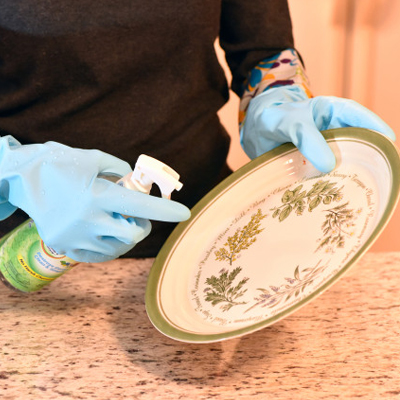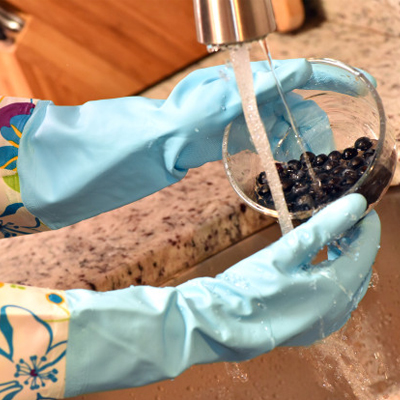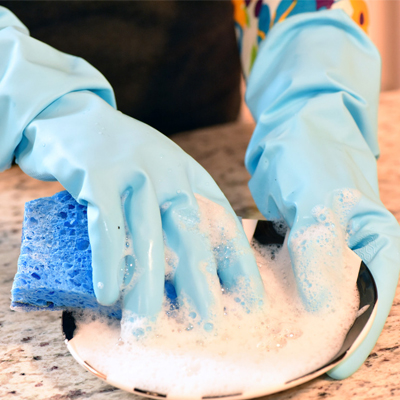A Brief Guide to Household Work Gloves
Apr 4th 2023
Household work gloves, also known as dishwashing gloves or cleaning gloves are a type of protective gloves that are designed to be worn during household chores, such as washing dishes, cleaning bathrooms, and handling household chemicals.
Household gloves are important because they help protect your hands from exposure to hot water, harsh chemicals, bacteria, and other germs that can be found around the house. By wearing household work gloves, you can prevent skin irritation, cuts, and other injuries that can occur from frequent exposure to cleaning agents and other household chemicals.

In addition to protecting your hands, household work gloves can also help keep your home clean and hygienic. By wearing gloves while cleaning, you can prevent the spread of germs and bacteria from one surface to another, which can help reduce the risk of illness and infection.
Overall, household work gloves are an essential item for anyone who regularly performs household chores. They offer both protection and hygiene benefits that can help keep you and your family safe and healthy.
How to choose household work gloves?
When choosing household gloves, there are several factors to consider:
Material: Household gloves are typically made from latex, nitrile, vinyl, or rubber. Latex gloves are comfortable and offer good dexterity, but some people are allergic to latex. Nitrile gloves are a good alternative for those with latex allergies and offer good chemical resistance. Vinyl gloves are less durable than latex or nitrile gloves but are a good option for those on a budget. Rubber gloves are the most durable, but they can be heavy and cumbersome to wear.

Size: It's important to choose household work gloves that fit well to ensure maximum dexterity and protection. Gloves that are too small can be uncomfortable and difficult to put on, while gloves that are too large can slip off and reduce grip.
Thickness: The thickness of the gloves will determine their durability and level of protection. Thicker gloves offer more protection against chemicals and punctures but can be less flexible and more difficult to work with.
Intended use: Consider what tasks you will be using the gloves for. If you are handling harsh chemicals, you'll need gloves with good chemical resistance. If you are doing dishes, gloves with good grip and water resistance will be important.
Quality: Look for household work gloves that are well-made and have a good reputation for durability and effectiveness.

Ultimately, the best household work gloves for you will depend on your specific needs and preferences. It's a good idea to try out different types of gloves to see what works best for you.
At WorkGlovesDepot, we have many different types of work gloves. Reach out to us for more information.
